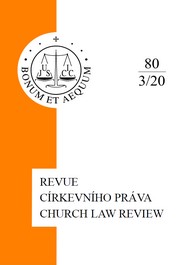Anti-Usury Doctrine and Evolution of Agency
Anti-Usury Doctrine and Evolution of Agency
Author(s): Aleš BorkovecSubject(s): History of Law, Economic history, Other Language Literature, 13th to 14th Centuries, Law on Economics, Theory of Literature
Published by: Společnost pro církevní právo
Keywords: usury; mutuum; agency; fairs; markets; societas; commenda; price;
Summary/Abstract: Thomas Aquinas is generally known as an opponent of usury, which means any interest on a loan (i.e. any payment over the principal capital). The doctrine created by Aquinas can be called anti-usury doctrine. In medieval economic and legal reality, other legal institutes, instead of the mutuum, had been applied for using things (real estate, chattels) without the transfer of their ownership – rent (locatio conductio rei), borrowing (commodatum) and leniency (precarium). In addition, the effects of the anti-usury (and anti-debt) doctrines caused the rise of the institute of agency. In symbiosis with the development of agency, there were (regulated) markets as a tool to combat crime and create legal certainty for which the institute of agency was important; and markets were important for the proper function of agency.
Journal: Revue církevního práva
- Issue Year: XXVI/2020
- Issue No: 80
- Page Range: 25-46
- Page Count: 22
- Language: English

